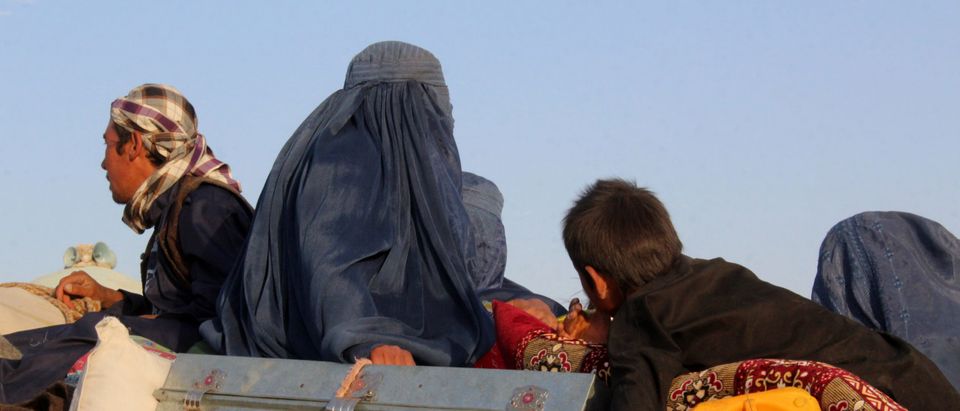Afghan women dread Islamist radicalism as the Taliban continues their swift advance into Kabul, according to reports from The Associated Press (AP) and the Guardian.
The burqa is a veil item that generally ensures the wearer is fully covered from head to toe, some include a mesh material that covers a woman’s eyes. Afghan women were forced to wear burqas during Taliban rule in the 1990s, according to Guardian.
The Guardian reported that many Afghan women want to avoid wearing burqas, including Habiba, a university student who says that wearing one will symbolize “the beginning of my sentence as a prisoner in my house.”
An unnamed university graduate in Herat, a city already under Taliban control, told AP that few women are now on the streets, adding that she would not “be ready to wear a burqa.”
The Taliban have already made a declaration requiring Herat women wear burqas in public spaces, according to Guardian.
The Taliban breached the Afghan capital, Kabul, after the president, Ashraf Ghani, fleed from the country.
Entering the capital marks a significant milestone in the Taliban advance amid United Nations pleas for the group to stop the offensive and the reported shredding of sensitive documents at the U.S. embassy in Kabul.
Women in #Herat, now under Taliban control are telling me when they tried to enter the grounds of their University today they were told to go home. Women working in offices also turned away. Schools have been shut down. 60 percent of University students in Herat were women. https://t.co/Cr0SLPJUED
— Yalda Hakim (@BBCYaldaHakim) August 14, 2021
Fawzia, a woman in Herat who remembers Taliban rule in the 1990s, described how the Taliban “beat the women and girls who left their homes without their burqas,” according to Guardian. (RELATED: FLASHBACK: Biden Predicts Taliban Takeover In Afghanistan Is ‘Not Inevitable’)
Following the 2001 fall of the Taliban, Fatimah, an artist and fashion designer, said that Afghan fashion had evolved to include an “amazing mix of different fabrics and nods to centuries-old traditions mixed with very modern styles and inspirations,” Guardian reported.
Amul, a model and designer, told Guardian that her “whole life has been about trying to show the beauty, diversity and creativity of Afghan women” but with the Taliban advance and the imposition of burqas she feels as if her “identity is about to be scrubbed out.”












